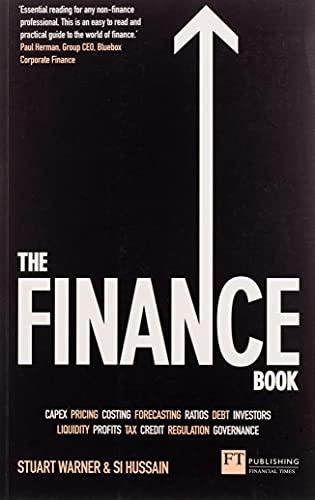Question
PROBLEM 3 We showed that in the Black-Scholes world we can price any European-style derivative, say with payoff h(S(T)), by computing an expected value: V(S,t)
PROBLEM 3
We showed that in the Black-Scholes world we can price any European-style derivative, say with payoff h(S(T)), by computing an expected value:
V(S,t) = exp(-r(T-t)) E[h(S(T)]
where S(T) is the random variable obtained from the process:
dX = rXdt + sXdW X(t) = S
In shorthand: The derivative price is the present value of its expected payoff under an adjusted process for S. (a replaced by r.) Begin at time t with S = S(t) propagate S from t to T using the process look at S(T), the terminal value of S, as a random variable work out the expected value of the derivatives payoff based on that random variable then discount back from T to t.
Note: If the stock pays a dividend rate q then the process we need to use is:
dX = (r-q)Xdt + sXdW
[1] Write S(T) = S(t) exp(Z) where Z is a normally-distributed random variable. Whats the mean and standard deviation of Z?
[2] Can you draw a picture of the density function for S(T)? Is the distribution symmetric around its mean?
[3] Suppose the payoff of the derivative is h(S(T)) = (S(T))2. Can you write the formula for V(S,t)?
[4] How about if h(S(T)) = 1/S(T) ?
[5] Suppose h(S(T)) = I(S(T) > K) where I(.) is the indicator function. This means that its value is 1 if the condition () is true and 0 otherwise. Can you write a formula for V(S,t)?
[6] For the last example is the vega of the option dV/ds ... always positive? Vega is always positive for regular calls and puts.
Step by Step Solution
There are 3 Steps involved in it
Step: 1

Get Instant Access to Expert-Tailored Solutions
See step-by-step solutions with expert insights and AI powered tools for academic success
Step: 2

Step: 3

Ace Your Homework with AI
Get the answers you need in no time with our AI-driven, step-by-step assistance
Get Started


